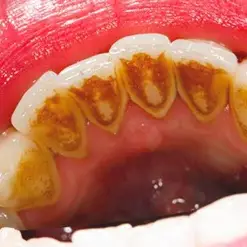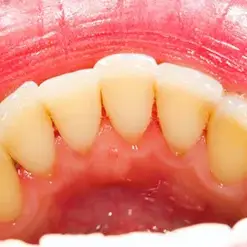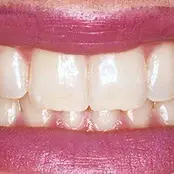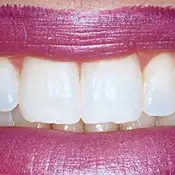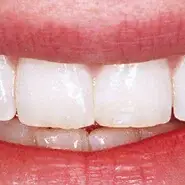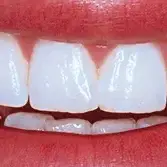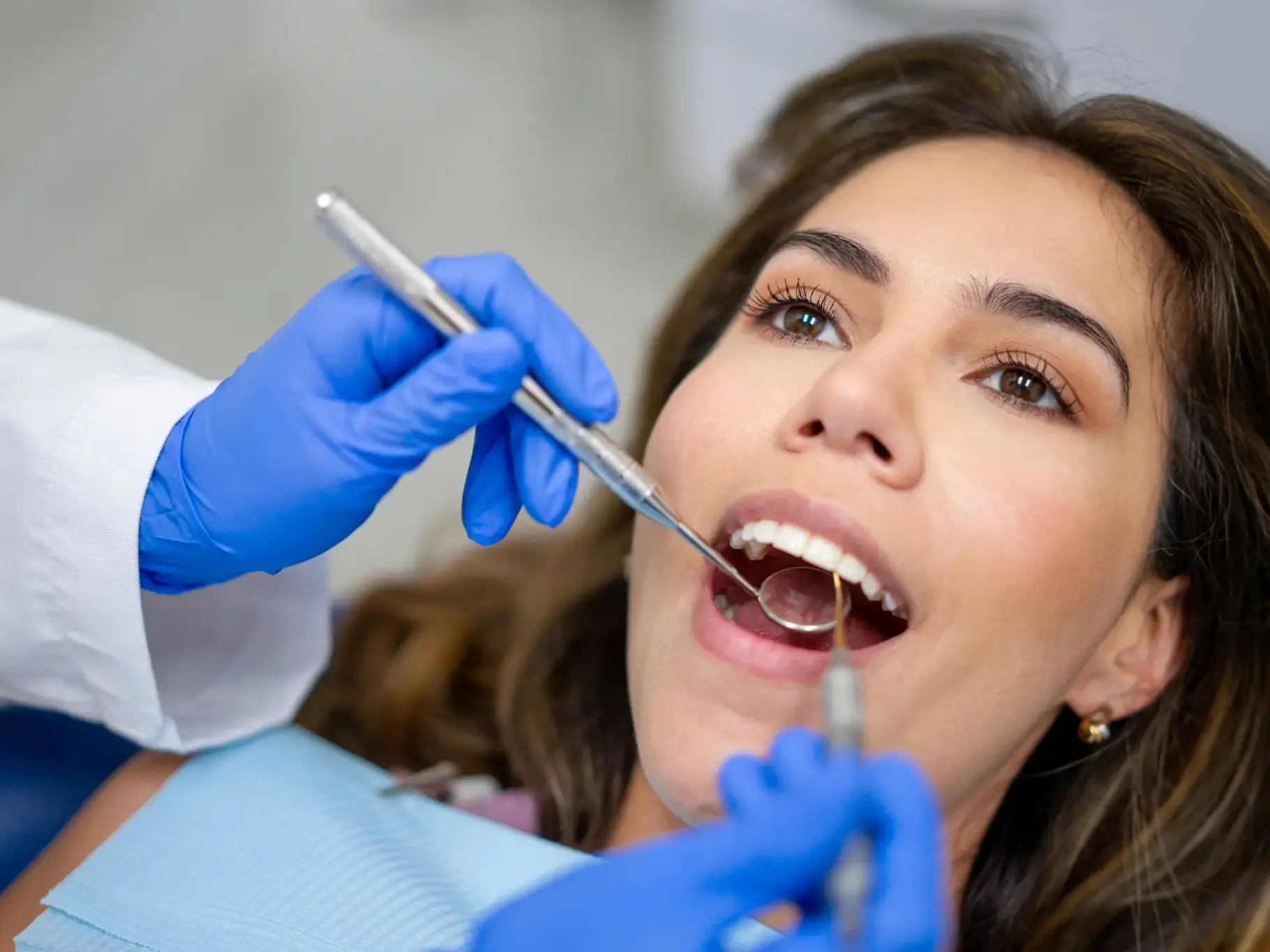
Your Dental Hygienist for Glasgow
Consistent brushing and flossing doesn’t quite cut it sometimes. For a rejuvenated, gleaming smile, it’s best to visit our Glasgow practice for a scale and polish session. Our experienced team will carry out deep, thorough teeth cleaning for a fresh, healthy appearance.
Whether you need targeted stain removal for areas of discolouration, or want to be photo-ready for an upcoming event, Peppermint is on hand to help. Book an appointment today with our dental hygienists in Glasgow!
The Peppermint Group offer Dental Implants in Glasgow. Visit our dental implants Glasgow page to find out more!
Explore More
Our experienced and dedicated team specializes in providing professional scale and polish sessions, providing deep and thorough teeth cleaning for a fresh and healthy smile.
At The Peppermint Group, we understand that consistent oral care might not always be enough to achieve the dazzling smile you desire. Whether you’re looking for targeted stain removal to address specific areas of discoloration or aiming to be picture perfect for an upcoming event, Peppermint’s experienced dental hygienists in Glasgow are here to help.
So are you ready to enhance your smile? Book an appointment with Peppermint’s dental hygienists in Glasgow to achieve the fresh, healthy, gleaming smile you’ve been looking for.
In addition to our dental hygiene services, Peppermint Group also offers Dental Implants in Glasgow. If you’re considering dental implants to restore your smile, visit our Dental Implants Glasgow page to learn more about this transformative solution.
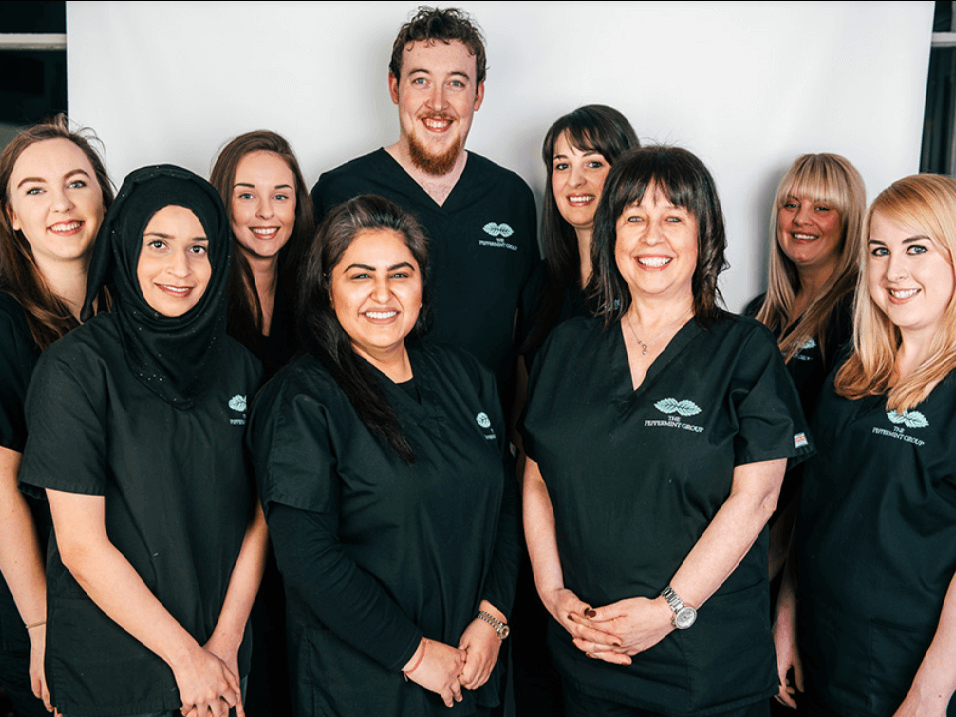
FAQs
If there are any unanswered questions below, please don't hesitate to get in touch with us.
They play an important part in dental health care and are mainly concerned with gum health – showing people correct home care and helping to keep the teeth and gums healthy.
The hygienist’s main work is to professionally clean the patient’s teeth. This is usually called ‘scaling and polishing’. However, perhaps their most important role is showing people the best way to keep their teeth free of plaque. Plaque is a sticky coating that forms constantly on your teeth. They also give advice on diet and preventing dental decay. The hygienist will work with your dentist to give you care that is tailored to your needs.
Dental hygienists are now able to take dental x-rays. The dentist will use these to help diagnose problems and decide on the possible treatment. All hygienists that take x-rays will have had proper training and will hold a certificate.
If the dentist suggests that you have fissure sealants, they may refer you to the dental hygienist because this is one of the treatments they are trained to carry out.
Not all practices have a hygienist. However, more of them now offer this as part of the service to patients, using part-time and full-time hygienists.
Regular professional cleaning, combined with looking after your teeth and gums well at home, will help keep your mouth healthy. A clean and healthy mouth will improve your appearance, help you to keep your teeth and give you fresh breath.
This is what the training of the hygienist is all about. Carefully removing the hard deposits of tartar (or ‘calculus’) that build up on the teeth and teaching you how to prevent them coming back, will go a long way towards slowing the progress of gum disease.
By talking to you about your diet, and recommending other preventive measures, the hygienist can help you keep to a routine that will slow down the rate at which your teeth decay. Regular visits and advice will help build your confidence in keeping your mouth healthy.
Adults who have a lot of decay can benefit from having fluoride applied. They can also have anti-bacterial gels and solutions applied under the gum to kill the bacteria causing gum disease.
Another very important part of the hygienist’s work is showing you and telling you how to look after your mouth at home. The hygienist may also suggest giving up smoking, as this will reduce staining. Recent research has also shown that smokers have more gum disease and lose more teeth than non-smokers. Your hygienist will be able to advise you on various ways of giving up smoking.
Children can benefit from having their teeth polished. The hygienist can also apply fluoride gels and solutions to help prevent decay.
The permanent (or ‘adult’) back teeth can also benefit from having the biting surfaces sealed. This is done by applying a special plastic coating to the biting surface soon after the teeth come through. For more information see our ‘Tell me about’ leaflet Pit and fissure sealants.
Some dentists will do this type of work. However, many now realise that the hygienist has been specially trained to carry out scaling and polishing and can spend longer with you. They are also expert at teaching you how to look after your teeth and gums. Often the hygienist will spend a number of appointments getting the gums healthy ready for the dentist to restore the teeth with crowns and fillings.
Scaling and polishing is usually pain free. However, if you do have any discomfort the hygienist can use anaesthetic creams, or give you some local anaesthetic. It is important that you let the hygienist know at the time so they can help with your pain.
You can do a great deal to help yourself and the hygienist, as you are in control of your mouth between visits to the practice. Your hygienist will have shown you how to remove plaque with a toothbrush and fluoride toothpaste.
They will also have shown you how to clean between your teeth with interdental brushes, floss or tape.
There are many oral care products now available including specialist toothpastes, powered toothbrushes, and mouthwashes. Your hygienist will recommend those that are best for you.
We recommend you follow three simple steps to help keep your teeth and gums healthy:
Brush your teeth for two minutes, twice a day with a fluoride toothpaste containing at least 1350ppm (parts per million) of fluoride
cut down on how often you have sugary foods and drinks visit your dentist regularly, as often as they recommend.
Cutting down the amount of sugar in your diet, and the number of times that you eat during the day, can help to reduce decay. Your hygienist can help you by looking at your decay problem and your diet, and by making some recommendations for you to consider.
Chewing sugar-free gum for 10 minutes after meals can also help to prevent tooth decay. Chewing gum makes your mouth produce more saliva, which in turn cancels out the acid produced in your mouth after drinking and eating. If you are looking to improve your overall confidence, why stop at a hygienist appointment? Our dental implants are an excellent next step to improving your smile. Our clinic’s team are also well known for our brilliantly effective CoolSculpting Glasgow treatments. Check them out and book an appointment to learn more.
